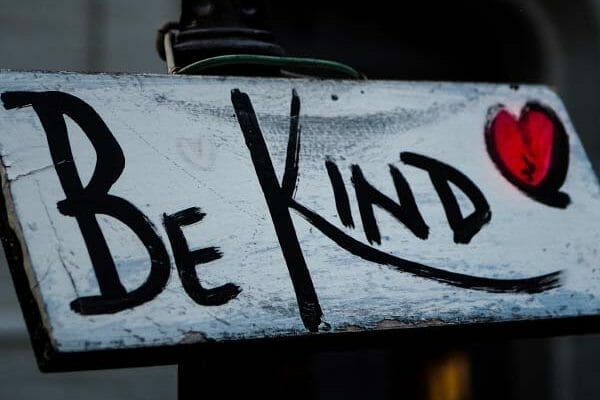Among the many recent news stories on Bob Dole, one stood out for me, a New York Times profile of Russell, Kansas, the place where Dole said he was “accepted with unjudging love.” In that prairie town, people grieved for the man and for his political ideals that favored compromise and civility. This holiday season, those ideals are mourned by many Americans across the country.
The Times story brought back a memory from my girlhood: A teacher produced a bowl of candy and promised a piece to each of us who did a good deed that day, any good deed large or small – hold a door or pick up a fallen book for somebody else – would be rewarded. Each day, she asked us to take a piece of candy if we’d earned it – honor system. What a great message: Do something for somebody else every day.
Good deeds go hand in hand with common courtesy: saying “please” and “thank you” or giving up your seat to a senior citizen on the bus. Common courtesy also means not being rude or insulting to others. I suspect that most people have rude or insulting thoughts with some regularity, at least I do, but common courtesy stops us from voicing them publicly. It helps us to control our anger, judgments, and narrow-mindedness. Recently, a local high school sports team made the news for their racist comments at a wrestling match, just a few months after their soccer team got into trouble for joking at a game about the Nazis. I wonder what lessons the school taught their students after the soccer-team scandal.
Online many teachers ask colleagues for so-called SEL activities (Social Emotional Learning) to help them deal with rudeness, bullying, and other anti-social behaviors. ‘Tis the season for taking class time (or home time) to get into the spirit of kindness and civility.
- For starters, ELA teachers might assign a story or novel that leads to thinking and discussion on related topics. This free resource book offers many suggestions: https://www.govinfo.gov/content/pkg/ERIC-ED464362/pdf/ERIC-ED464362.pdf
- Social studies teachers might assign reading or research projects on figures in history respected for their service to other people.
- Discussion, debate, or writing assignments could cover related topics: promoting rights, dealing with peer pressure, resisting stereotypes, conflict resolution. Students might also discuss similarities and differences among individuals or the percentage of work profits to give to charity.
Teachers and parents could revive the lost art of writing thank you notes, get well cards, or even condolence cards.
Or they could put out a bowl of candy to reward good deeds.
Activities like these will not transform the tone of conflict and anger in our society overnight. The past two years have been long and tough. But it’s a starting place for building bridges and civility between the sides of our social divides.
*photo by adam-nemeroff

